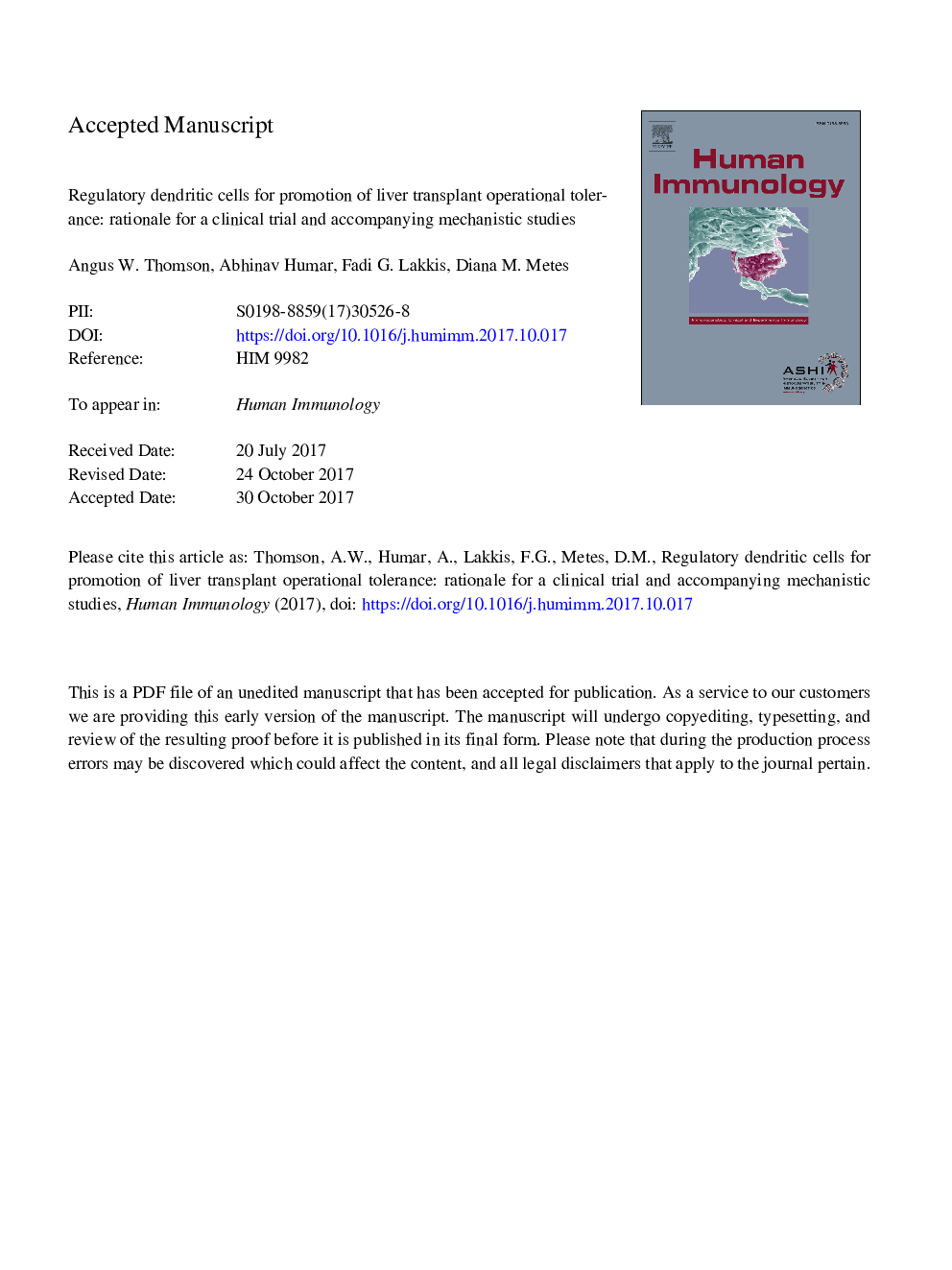| Article ID | Journal | Published Year | Pages | File Type |
|---|---|---|---|---|
| 8737622 | Human Immunology | 2018 | 33 Pages |
Abstract
Dendritic cells (DC) are rare, bone marrow (BM)-derived innate immune cells that critically maintain self-tolerance in the healthy steady-state. Regulatory DC (DCreg) with capacity to suppress allograft rejection and promote transplant tolerance in pre-clinical models can readily be generated from BM precursors or circulating blood monocytes. These DCreg enhance allograft survival via various mechanisms, including promotion of regulatory T cells. In non-human primates receiving minimal immunosuppressive drug therapy (IS), infusion of DCreg of donor origin, one week before transplant, safely prolongs renal allograft survival and selectively attenuates anti-donor CD8+ memory T cell responses in the early post-transplant period. Based on these observations, and in view of the critical need to reduce patient dependence on non-specific IS agents that predispose to cardiometabolic side effects and renal insufficiency, we will conduct a first-in-human safety and preliminary efficacy study of donor-derived DCreg infusion to achieve early (18â¯months post-transplant) complete IS withdrawal in low-risk, living donor liver transplant recipients receiving standard-of-care IS (mycophenolate mofetil, tacrolimus and steroids). We will test the hypothesis that, although donor-derived DCreg are short-lived, they will induce robust donor-specific T cell hyporesponsiveness. We will examine immunological mechanisms by sequential analysis of blood and tissue samples, incorporating cutting-edge technologies.
Keywords
Related Topics
Life Sciences
Immunology and Microbiology
Immunology
Authors
Angus W. Thomson, Abhinav Humar, Fadi G. Lakkis, Diana M. Metes,
